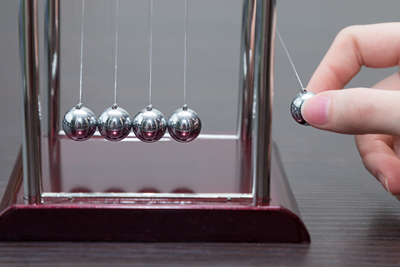Judicial separation is a period that comes before divorce. It is a period of separation mandated by the court before the divorce proceedings can be started. Under all personal laws, the judicial separation period is for one year. It is the final opportunity provided to couples for resolving their differences, This article provides and understanding of judicial separation procedure in India.

In India, a marriage ceremony is considered to be one of the most essential and auspicious arrangements between a man and a woman. The religious duties of marriage, according to sacred Hindu religion, is that of a permanent connection between the husband and the wife which is unbreakable and endless in nature, valid not only for the present lifetime but for numerous future lifetimes . This ceremony is thus performed with utmost religious practices and rituals.
However, it can clearly be determined that under this ancient regimen for marriage, there existed no form of any consent of either of the parties regarding practical and day-to-day issues which may occur during the tenure of marriage, which are well beyond religious customs. Thus, the Hindu Marriage Act was incorporated in order to provide justifiable rights to married individuals and it even gave options for revoking marriage under specific sections with limits and bounds, which either parties are free to consider.
Section 12 of the Hindu Marriage Act provides that any marriage is voidable if the following conditions are satisfied:
Moreover, Section 11 of the Hindu Marriage Act,1995 provides that a marriage is void if the clauses (i), (vi), (v) of Section 5 are not satisfied. The clauses are given below:
Thus, in keeping with practicality, the advanced concept of marriage is more contractual in nature. As of today, it is an established opinion of the people that marriage needs to be operative in nature and must arise out of the mutual consent and agreement of both parties.
Judicial Separation is a provision under the Indian marriage laws, wherein both the husband and the wife get an opportunity to introspect about giving a chance to their marriage, before going ahead with the divorce proceedings. Under a decree of Judicial Separation, both the parties live separately for a period of time getting adequate space, independence and time to think about continuing their marriage. During this phase, both the parties still carry the same legal status of being husband and wife and yet, at the same time, live separately also. The period of judicial separation is two years and gives time for introspection and resolving the matrimonial disputes and misunderstanding between the couple.
The following are grounds on which Judicial Separation can be granted:
The Hindu Marriage Act, 1955 provides for lawful judicial separation under section 10 for both the spouses , who are married under the said section. This means that they are entitled to claim relief via judicial petition by filing a petition and once the order for the same has been passed, they are not liable to cohabitate.
Furthermore, either of the parties to the marriage, who has been hurt by the other party, is entitled to file for the judicial separation at a District Court under Section 10 of the Hindu Marriage Act, 1955. However, the following essentials are required to be fulfilled for the same:
Each petition, as per, Order VII Rule 1 of the Civil Procedure Code, 1973 must disclose the following details and adhere to them:
Although the procedure of dealing defended and undefended proceedings for both judicial separation and divorce are similar, there are certain differences between them. Explore them as follows:
Hence, Judicial Separation is a process wherein, the Court provides a final opportunity to a couple seeking divorce, to try resolving their differences by living separately, before the initiation of divorce proceedings. This gives time for introspection and resolving the matrimonial disputes and misunderstanding between the couple.
Copyright 2024 – Helpline Law




